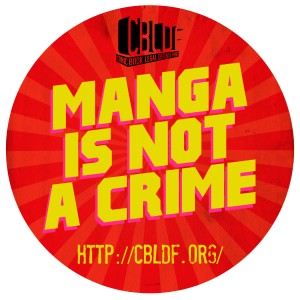 Last week, we reported on a proposed revision to a Japanese child pornography law that leaves many innocent people vulnerable to prosecution due to vague legal definitions that could criminalize even the most innocuous image. In response, the Japan Cartoonists Association, the Japan Magazine Publishers Association, and the Japan Book Publishers Association all issued statements opposing the legislation.
Last week, we reported on a proposed revision to a Japanese child pornography law that leaves many innocent people vulnerable to prosecution due to vague legal definitions that could criminalize even the most innocuous image. In response, the Japan Cartoonists Association, the Japan Magazine Publishers Association, and the Japan Book Publishers Association all issued statements opposing the legislation.
Legislators have been trying since 2009 to close a loophole in the law, making the possession of child pornography a crime; as written, the law only allows the prosecution of people who make or sell child pornography. Of greatest concern to publishers is language that opens the door to prosecution of any image of a child, whether it is photographic or created, that can be shown to cause sexual arousal. The language is so vague that harmless images such as those found in National Geographic and other educational materials, family photos, or drawings could lead to prosecution.
Anime News Network reported on the opposition from the Japanese associations, describing the chilling effect the revision has on free expression:
The Japan Book Publishers Association statement notes that “while this bill says it is protecting children, the truth is it is also restricting freedom of expression.” The statement of opposition also questions why regulations on anime and manga are mentioned in the amendment “even though the original goal [of the amendment] is to protect the human rights of actual children.” The Japan Book Publisher’s Association also stated that “the risk of destroying Japan’s cherished manga culture would be very high” if the bill were passed. The associations also oppose a clause in the amendment that would investigate if there were any link between anime and manga and the violation of human rights of real children. The Japan Cartoonists Association’s statement notes that the regulations on anime and manga would “have an undesired negative influence [on the anime and manga industry] and would cause turmoil.”
In the latest round of revisions, members of the Japanese Diet initially attempted to prevent prosecution for the possession of non-sexual images and images that do not depict actual people, including those found in manga and anime. These attempts were defeated by opposing political forces, and the current proposed legislation does nothing to fix the vague language. In fact, it takes steps toward equating drawn images with actual acts of child abuse, which can only serve to take the focus off the real children who are harmed by child pornography.
You can view Anime News Network’s latest coverage of the law here. Read our previous article on the situation here.
Please help support CBLDF’s important First Amendment work and reporting on stories such as this by making a donation or becoming a member of the CBLDF!
Betsy Gomez is the Web Editor for CBLDF.